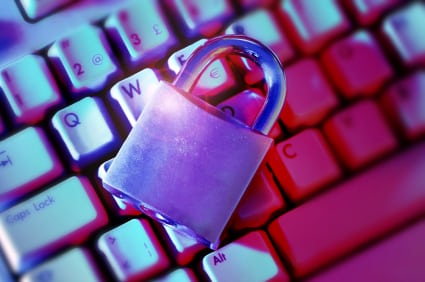
Greetings Nancy! Yes, you’re right: theoretically, any time you put data on a Net-connected server like Apple’s upcoming iCloud, it will be more susceptible to hackers than it would sitting on your PC’s hard disk—or, say, a USB thumb drive that’s stashed in a drawer.
But just because your personal data files are sitting on your home PC doesn’t mean they’re absolutely, positively safe and secure.
Consider this: If you’re using a Windows PC, there’s always a chance that your system could get infected with malware—that is, malicious software that sneaks its way onto your computer and does … well, any number of bad things, from keeping track of your keystrokes (usually with the intent of snagging usernames and passwords) to snooping around your files.
Or, here’s another (more likely) possibility. One fine day, you wake up, hit the power button on your PC, and…nothing. Why? Because your system’s hard drive failed—and yes, it happens. (The hard drive on my old Mac PowerBook gave up the ghost about five years ago, and while I’d backed up a few key files, I lost everything else. Not fun.)
Or, how about this: Your house burns down. (Yikes!) Or gets soaked in a flood. Or pummeled by a “Wizard of Oz”-style tornado. Beyond the damage to your home, you may well lose your PC, all its data, and even any backup drives you had squirreled away in the closet.
Sorry to be laying all these scary scenarios on you. (Hopefully, you’ve already had your morning coffee.) I’m just trying to make the point that there are risks to everything, including keeping your data “safe” on your desktop.
Some easy ways to minimize your risk? For your PC at home, back up your data religiously. (I’ll go into detail about how to back up your system in a future post.) If you can, keep a copy of your most precious data on a portable drive in a location other than your house—like your safe-deposit box. Don’t open email attachments from strangers. And if you’re a Windows user, make sure you have malware and anti-virus protection (like Microsoft’s free Security Essentials software) installed, updated and running.
When you’re dealing with your online accounts in the cloud, make sure you don’t use the same password everywhere. Make sure to use a credit card—and not your debit card—while shopping online. And never give out your account passwords to anyone. (Click here for more online security tips.)
And in general, the key to being smart with your data is the same as for handling an investment portfolio: diversity. Or, put another way, don’t put all your eggs in one basket.
After all, a cloud server could be hacked, and your hard drive might fail, but it’s highly unlikely that both would happen at the same time. (Fingers crossed.)
Anyway, I hope I haven’t scared you off from ever touching a computer again. Just remember: if you’re conscientious, both your PC- and cloud-based data should be relatively safe—and if you’ve been backing up your data and careful with your passwords, you’ll be able to deal with almost any bump in the online road.
Did this advice help? Have more questions? Let me know!

